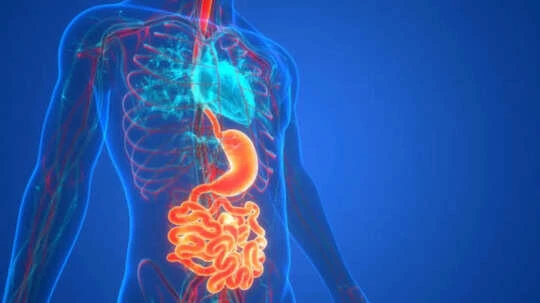Stomach cancer is among the fastest-growing cancers, which has early signs that can be similar to other conditions and hence can be missed.
According to experts, signs like stomach pain are way too common to even think of as cancer, but if it does not go away, gets worse, or comes with other strange symptoms, it could be your body trying to tell you something more serious.
Doctors say stomach cancer symptoms are often subtle at first and are easily mistaken for less serious conditions. While stomach cancer often grows without causing any symptoms until it is too late to treat it effectively, finding things early can save lives.
Here are five rare but aggressive types of stomach cancer and their underlying symptoms.
Stomach lymphoma
Stomach lymphoma is always located near the lymph nodes, but according to doctors, it also starts in the stomach too. Also known as cancer of the immune system, stomach lymphoma is a rare cancer and is treatable only when caught in very early stages.
The most common stomach lymphomas include Mucosa-Associated Lymphoid Tissue, or MALT lymphoma, and Diffuse Large B-Cell Lymphoma, or DLBCL. Doctors say the key symptoms often mimic gastritis or ulcers, including abdominal pain, nausea, vomiting, and weight loss. Diagnosis involves imaging and biopsies, and treatment strategies vary but include H. pylori eradication for MALT lymphoma, chemotherapy, and sometimes radiotherapy or surgery.
Gastrointestinal stromal tumours
Gastrointestinal stromal tumours, or GISTs, are rare and mostly begin in the digestive tract’s muscle cells. Doctors say they mostly arise from the interstitial cells of Cajal, known as the pacemakers of your digestive system.
Even though GISTs can be asymptomatic, they do cause symptoms like severe abdominal pain, nausea, vomiting, blood in the stool, or fatigue. According to doctors, the treatment for GSIT mostly depends on its characteristics and could also include surgery and targeted drug therapies that inhibit the genes which cause it.
Adenocarcinoma
This is the most common type of stomach cancer that develops from the gland cells in the stomach’s inner lining.
According to experts, adenocarcinomas account for at least 95 per cent of all stomach cancers that develop in certain mutated gland cells that exist in the mucosa, or the stomach’s innermost lining. There are several causes of adenocarcinoma, and it develops when genetic mutations cause cells to grow in an uncontrolled way.
Many times, a person can also acquire cancer-causing genetic mutations from a biological parent. Apart from that, many kinds of infections can also cause adenocarcinoma, which includes Helicobacter pylori infections.
Symptoms of this cancer include feeling full quickly and unexplained weight loss, apart from chronic tummy ache.
Squamous cell carcinoma
It is an extremely rare type, accounting for only 0.04 to 0.07 per cent of all gastric cancers across the world. Doctors say this aggressive cancer mostly affects the upper part of the stomach and is most often diagnosed in men in their 60s.
While its exact cause is unknown, a history of squamous metaplasia and smoking are associated risk factors. Also, infection with viruses like the Epstein-Barr virus has been found in some cases.
Symptoms of this cancer include unexplained weight loss, abdominal pain, and vomiting, and the prognosis, doctors say, is generally poor due to its aggressive nature.
Carcinoid tumour
A carcinoid tumour is also a rare but slow-growing cancer that mostly originates in neuroendocrine cells – found throughout the digestive tract and in the lungs.
Doctors say these tumours are mostly discovered incidentally during surgery or when symptoms like flushing, diarrhoea, or even respiratory issues arise and become chronic.
Most of the carcinoid tumours are said to be benign but can become cancerous and spread. Treatment depends on the tumour’s location and stage but also includes surgery, medication to control hormone production, and other targeted therapies.
